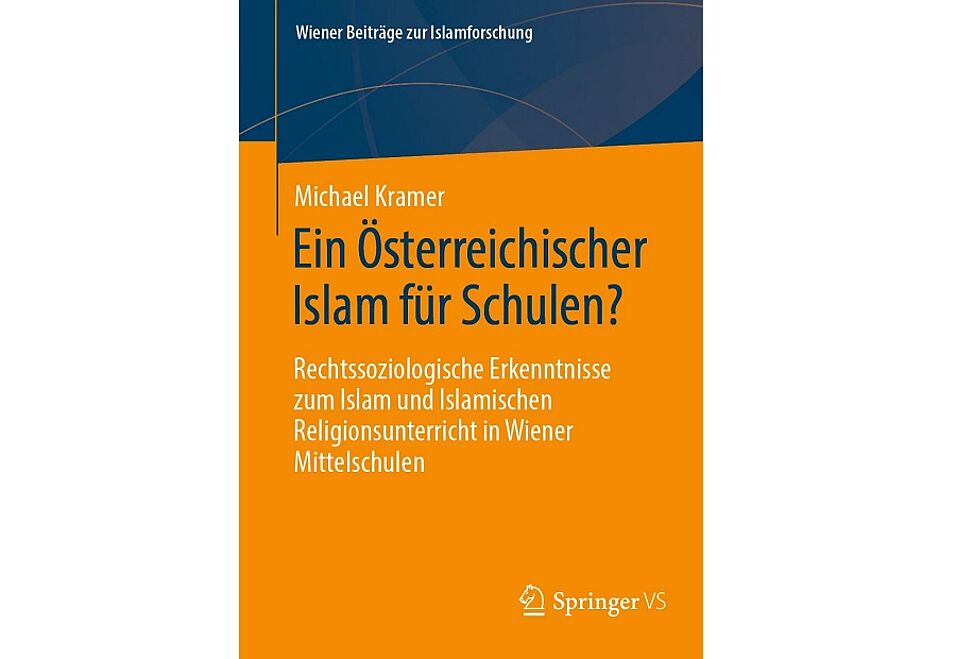The publication Ein Österreichischer Islam für Schulen? Rechtssoziologische Erkenntnisse zum Islam und Islamischen Religionsunterricht in Wiener Mittelschulen [An Austrian Islam for Schools? Legal-sociological findings on Islam and Islamic religious education in Viennese secondary schools] by Mag. Michael Kramer, PhD is available from Springer since 1 February 2024.
["This publication deals with the relationship between the state and Islam in a general political and school context, whereby Islam is primarily represented by the Islamic Religious Community in Austria (IGGÖ) alongside other Islamic institutions. The IGGÖ - as well as other churches and religious societies (KuR) - are granted far-reaching autonomy rights in the Austrian religious law system, especially in schools in the form of denominational religious education (RU). In order to investigate this relationship in schools, a legal and political science perspective is taken on the legal framework and the religious education of the IGGÖ (IRU) in Viennese secondary schools. Consequently, the study also looks at the various actors involved, in particular Muslim pupils and parents, religious education teachers, subject inspectors and other IGGÖ authorities as well as school headmasters, education directorates and the Ministry of Education. For this purpose, seven (school) authorities of the IGGÖ (IGGÖ-SA) as 'representatives of Islam' and six Viennese secondary school directors (MSD) as 'state representatives' were interviewed as part of qualitative social research. [...] The topics of analysis include the inclusion of specialist inspectors for religion in the education directorates, the dispute over the abbreviation of IGGÖ for the entry in school reports, the difficulties in the organisation with the RU, the (religious) behaviour of Muslim pupils and parents at school and the limits of teaching in the IRU in the context of civic education. In conclusion, the IGGÖ-SA's socially integrative and pluralistic perspective on these challenges enables the outlining of an Austrian Islam or an ideal-typical IRU."]

